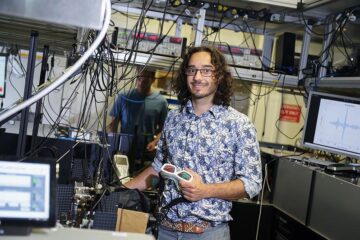Universities’ benefits to regional economy

Universities have long since been recognised as major partners in regional development, however they have an unseen role is just as important to wealth generation, says Fran Hulbert, Director of Skills Policy at the North West Regional Development Agency.
Speaking to 200 delegates from the UK’s knowledge transfer community at the AURIL conference in Brighton today (Friday 07 April), Hulbert underlined the importance of HE to regional economies.
“Knowledge is an invisible resource that impacts significantly on the regional economy in many ways,” she says. “Universities are vast repositories of knowledge, supplying the business community with products, training, qualifications, high quality employees, consultancy services and innovation solutions. They are also a key stakeholder within the economy as a major employer, both directly and indirectly, a major owner of capital such as property and facilities – and they are also a very stable feature in the regional landscape. The cumulative power of all of these factors makes universities significant strategic partners both within the region itself, and as a national voice to influence government.”
She says: “The original remit of regional development agencies (RDAs) is of course driven by an economic imperative, but by definition this also includes a social inclusion and regeneration agenda. The two are interrelated.
“In the North West, our Regional Economic Strategy, informed by extensive consultation, has been approved by Government ministers. The RDA plays a custodial role and the RES now demonstrates a far more mature analysis of needs, and a far clearer set of priorities for expenditure through transformational projects – many of which have a strong higher education element.
“For example, our cluster policy in the North West identifies gross value added technology sectors such as aerospace and advanced manufacturing as priorities, but we also focus on people-intensive sectors, such as health, education, retail and tourism. These employ high volumes of people but must tackle organisational inertia and a poor image.
“These sectors have very different needs in terms of skills requirements. The higher education sector is a key partner in identifying priorities and helping us to allocate resources that can be put to best use.”
Media Contact
Weitere Informationen:
http://www.auril.org.ukAlle Nachrichten aus der Kategorie: Bildung Wissenschaft
Neueste Beiträge

Neue universelle lichtbasierte Technik zur Kontrolle der Talpolarisation
Ein internationales Forscherteam berichtet in Nature über eine neue Methode, mit der zum ersten Mal die Talpolarisation in zentrosymmetrischen Bulk-Materialien auf eine nicht materialspezifische Weise erreicht wird. Diese „universelle Technik“…

Tumorzellen hebeln das Immunsystem früh aus
Neu entdeckter Mechanismus könnte Krebs-Immuntherapien deutlich verbessern. Tumore verhindern aktiv, dass sich Immunantworten durch sogenannte zytotoxische T-Zellen bilden, die den Krebs bekämpfen könnten. Wie das genau geschieht, beschreiben jetzt erstmals…

Immunzellen in den Startlöchern: „Allzeit bereit“ ist harte Arbeit
Wenn Krankheitserreger in den Körper eindringen, muss das Immunsystem sofort reagieren und eine Infektion verhindern oder eindämmen. Doch wie halten sich unsere Abwehrzellen bereit, wenn kein Angreifer in Sicht ist?…





















